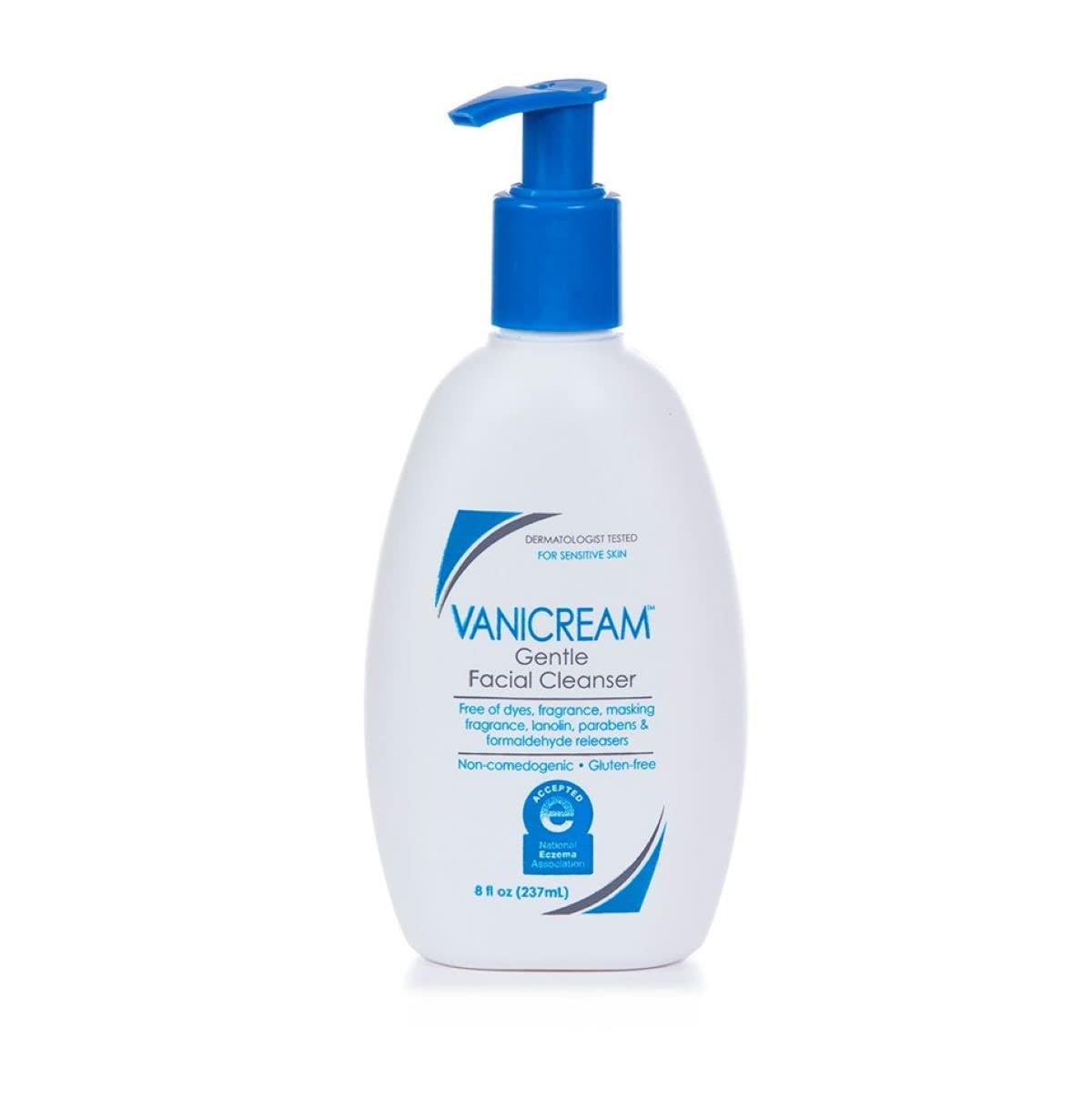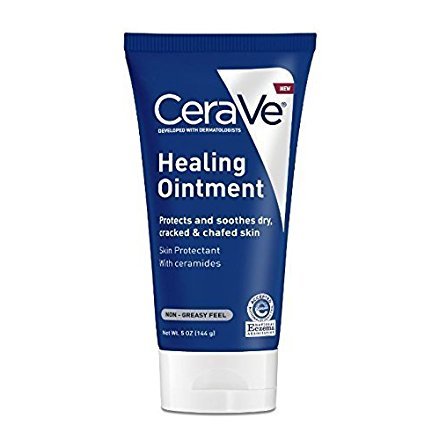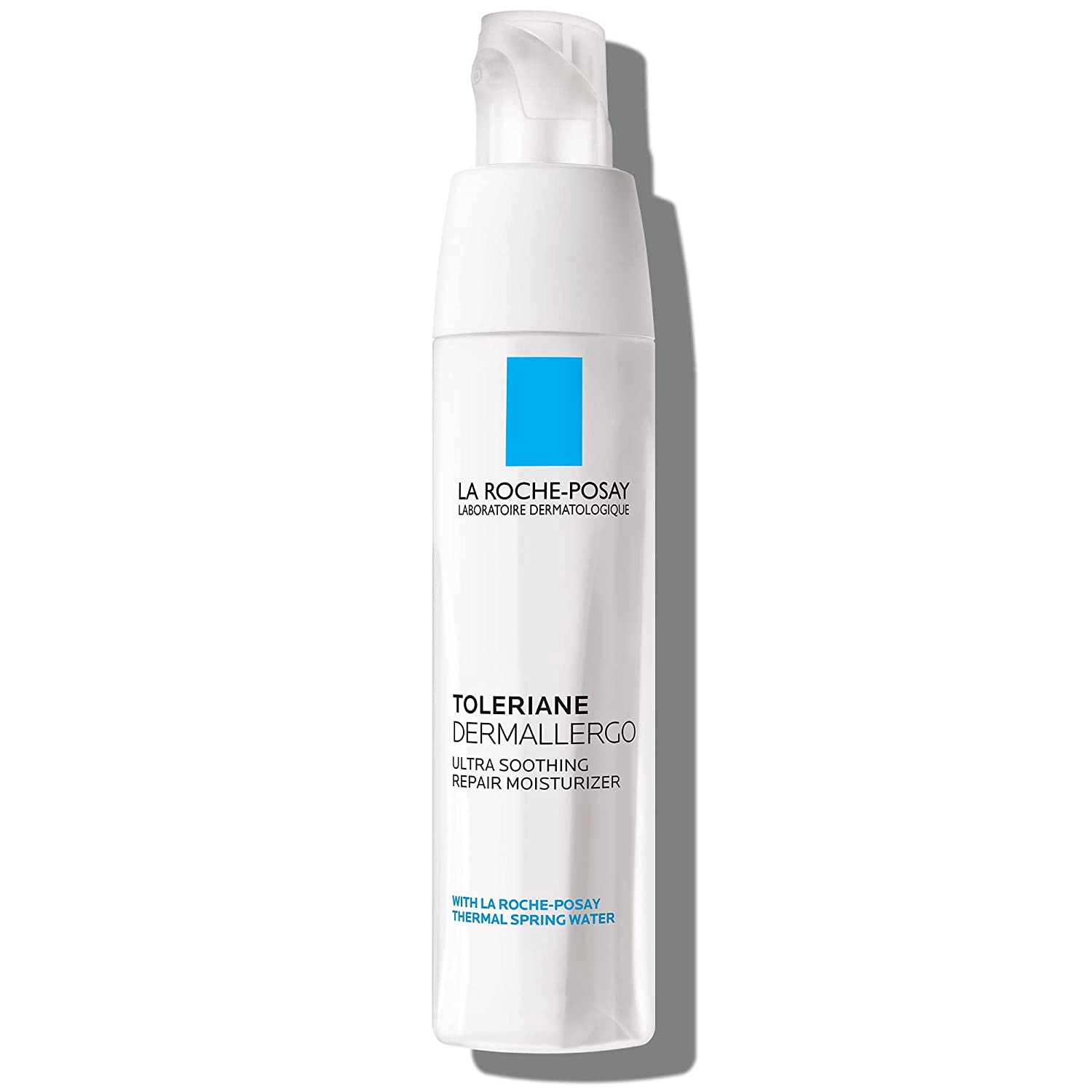With the dry days of winter in the rearview mirror, spring humidity often brings about more comfortable, hydrated skin. Many even experience a major uptick in oil production and pore congestion. But if you suffer from spring allergies, the change in season can catalyze dryness and itching—especially if you’re prone to eczema.
“Somebody who has really bad spring allergies can definitely feel like their skin, in general, is more sensitive,” says Marissa Garshick, MD, a board-certified dermatologist in New York City. “It’s not unusual for people with spring allergies to develop red, sleepy, puffy eyes—even independent of having an underlying diagnosis of eczema.” But if you do have eczema, she notes that spring allergies can cause a flare. “Those who have eczema may be more likely to have seasonal allergies,” she adds.”Just because of the fact that they exist together, you may see a flare-up of both of these conditions in the springtime. But also, people suffering from spring allergies are often rubbing and aggravating their skin, which can flare eczema as well.”
So if the rise in pollen is leaving your skin dry, flakey, itchy, and irritated, there are things you can do to help. Get the tips below from dermatologists and allergists.
How to deal when spring allergies cause dry skin
1. Get the source of the allergy under control
No matter what you slather on your skin, the only way to really soothe dryness caused by spring allergies is to manage them. Be consistent about taking your allergy meds and visit a board-certified allergist.
“It’s good, if you suffer from allergies in general, to see a board-certified allergist and be tested,” says allergist and immunologist Purvi Parikh, MD. “Different pollens are in the air at different times of the year. Also, you might be someone who’s allergic to indoor things as well as outdoor, so in order to know when you need to be prepared, it’s a good idea to get tested. Because then you’ll know what your triggers are, and what to do about them.”
2. Keep your skin-care routine minimal and soothing
“Keep your skin routine simple and focus on a less-is-more approach,” says Dr. Garshick. “Whenever your skin is more susceptible to inflammation, it may be more reactive. So you wanna keep everything simple to make sure that you’re not going to develop sensitivity or use any ingredients that are gonna worsen the skin overall.”
Great for the face and body, this bar is beloved by derms as a gentle cleanser. “The bar is very gentle but also nourishing and moisturizing on the skin,” says Dr. Garshick.

“The VaniCream Facial Cleanser is great because it eliminates many of the common allergens,” says Dr. Garshick. “So there is no preservative, no fragrance. So in general, for those who do have more sensitive skin, it’s a great gentle option that won’t cause worsening redness or flaking.”

“In many cases, if the skin does experience redness and flaking a prescription or a non-prescription cortisone cream may be necessary to soothe and calm the skin,” says Dr. Garshick. Just be sure to check in with a board-certified dermatologist first.
<!– –>

If your eyes are super irritated, you can apply a thin layer of this ointment around the eyelids. “That can be helpful to protect the skin from external irritation, which even includes rubbing,” says Dr. Garshick.

This face lotion is soothing and lightweight, making it perfect for spring. Formerly known as Toleriane Ultra, “it’s a great gentle concentrated moisturizing formula,” says Dr. Garshick. “It’s lightweight in the sense that it absorbs easily, but provides a nice level of moisture and protection for the skin.”
3. Consider investing in an air purifier
“Air purifiers are a huge help in maintaining clear and calm skin. The air inside homes can contain up to five times more pollutants than the outside air,” says Marnie Nussbaum, MD, a New York City-based board-certified dermatologist. “High-quality air purifiers can capture mold, bacteria, formaldehyde particles, and even allergens which will significantly improve the quality of your air and, therefore, your skin.”
If you want something functional and pretty, consider the Coway Airmega 250 Art ($499), a limited edition version of the Airmega 250 outfitted with artwork by graphic designer Haily Hills. It doesn’t take up much room and is pretty quiet, helping it fit into your home without sticking out like a sore thumb.

4. Sleep with your windows closed
Cool air drifting through your window might feel amazing as you fall asleep, but all it’s doing is pulling pollen into your room. That’s Dr. Parikh recommends sleeping with your windows shut during allergy season. It’s also probs best to keep them closed during the day, as any allergens that do blow in can find a comfy new home on your pillow.
“You should be spending eight hours a night in your bed,” says John McKeon, MD, CEO of Allergy Standards. “Often, the bed can be the source of the trigger factor, rather than the actual air. People think it’s the air they’re breathing, but really it could be the allergens [from their bedding] getting into the air that they’re breathing while they’re asleep.
